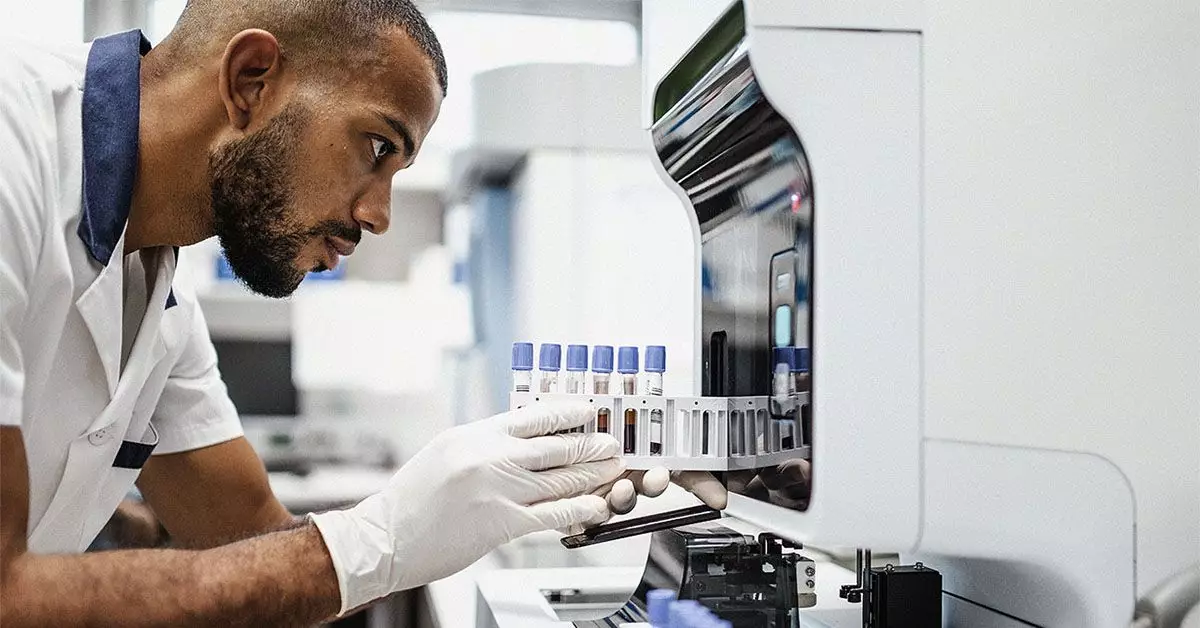Monoclonal antibodies (mAbs) are engineered proteins that emulate the functionality of natural antibodies produced by the immune system. Originally developed for specific oncology applications, these therapeutic agents have broadened their scope to treat various conditions, including infectious diseases like COVID-19. At the core of their utility is their ability to bind to specific antigens—molecules typically found on the surface of pathogens or abnormal cells—thus enabling the immune system to identify and attack these foreign invaders or dysfunctional cells.
The human immune system is inherently sophisticated, crafting a diverse array of antibodies that target various pathogens. Nevertheless, certain diseases, particularly cancers, can elude immune detection due to their endogenous origin. Monoclonal antibodies serve as a supplemental tool, enhancing the body’s natural defenses and increasing the specificity of the immune response. By directly targeting specific antigens associated with disease, mAbs assist in distinguishing affected cells from healthy ones, allowing for more precise treatment options.
The application of monoclonal antibodies in oncology has revolutionized patient care. They function not only as standalone treatments but also as vehicles for chemotherapy, effectively delivering therapeutic agents directly to malignant cells. For instance, agents like blinatumomab have a dual action; they bind to leukemia cells by targeting CD19 and simultaneously recruit T cells via CD3, enhancing immune-mediated cytotoxicity against cancerous cells.
Different types of monoclonal antibodies serve various roles in treating cancer. Naked monoclonal antibodies, which lack additional drugs or radioactive tags, can bolster the immune response or selectively mark diseased cells for destruction. Meanwhile, conjugated monoclonal antibodies carry therapeutic or radioactive components directly to the target cells, minimizing collateral damage to surrounding normal tissues. An example includes ibritumomab tiuxetan, which has shown efficacy in treating non-Hodgkin’s lymphoma.
Furthermore, bispecific monoclonal antibodies expand treatment possibilities by binding to two distinct antigens, allowing for complex interactions, such as those between T cells and leukemia cells, thereby optimizing therapeutic outcomes.
The therapeutic landscape for monoclonal antibodies has extended far beyond cancer treatment. They have emerged as significant tools in combating infectious diseases, particularly during the COVID-19 pandemic. Some mAbs have been developed to neutralize particular strains of the virus, offering an adjunctive treatment option, especially for high-risk individuals. However, it is essential to note that their effectiveness varies depending on the specific virus strain, which raises questions about their long-term role in managing emerging infectious diseases.
Monoclonal antibodies are also instrumental in diagnostic applications. They can detect disease-related antigens in various conditions, including latent infections and specific types of tumors, thus aiding in timely interventions. For example, they have been successfully employed to identify the presence of cytomegalovirus or to localize cancerous tissues.
Despite their therapeutic promise, the use of monoclonal antibodies isn’t without challenges. The cost associated with mAb therapies can be prohibitive, often requiring comprehensive insurance coverage to alleviate financial burdens. Additionally, potential side effects such as skin reactions, flu-like symptoms, and more severe conditions, including heart disease, necessitate careful patient monitoring and consultation with healthcare professionals.
Patients considering monoclonal antibody treatments are encouraged to engage in discussions with their healthcare providers. Questions regarding treatment effectiveness, the existence of alternative therapies, and the risks versus benefits of mAb therapies can significantly impact patient choice and satisfaction.
As research continues to unveil the full spectrum of capabilities of monoclonal antibodies, their future in medicine appears to be bright. Ongoing clinical trials and investigations aim to refine existing treatments and explore novel targets, further extending their applicability in both chronic and acute conditions. The continuous evolution of mAb technology presents a paradigm shift in how diseases are treated, emphasizing precision and personalization in patient care.
Monoclonal antibodies signify a remarkable leap in medical science. Their unique ability to target specific antigens while minimizing damage to healthy cells is revolutionizing the treatment landscape for diseases, particularly cancer. As our understanding deepens and new applications emerge, these powerful biological agents could redefine therapeutic approaches in medicine, leading to improved patient outcomes and survival rates.

